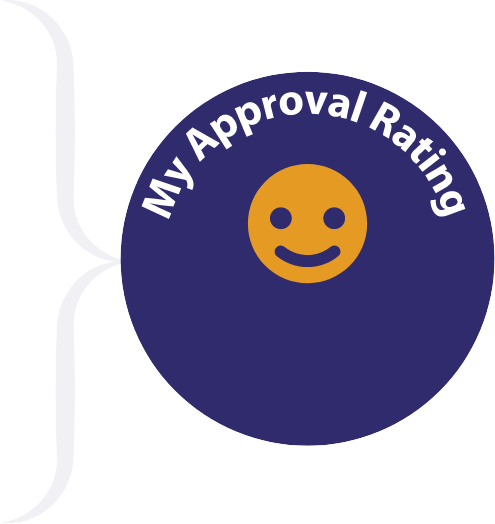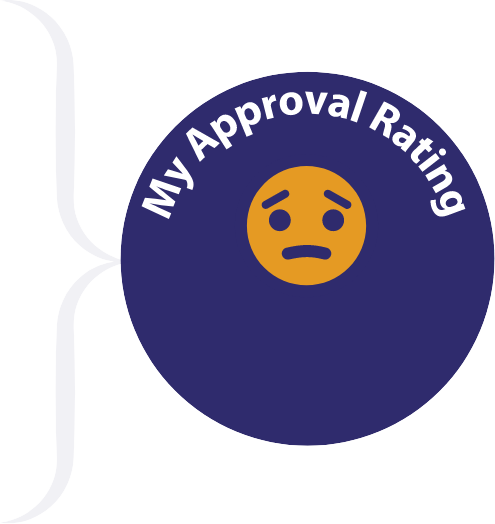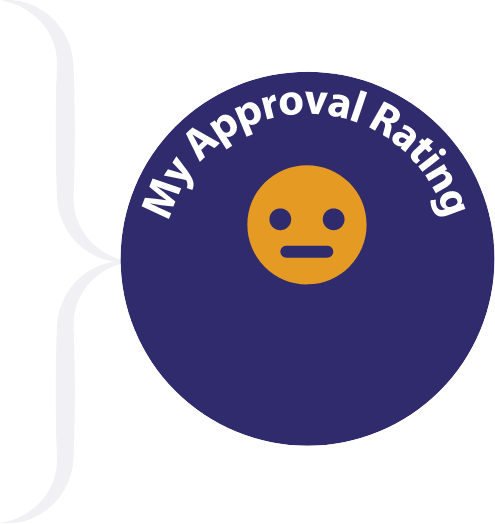Working towards conservation solutions can take time, energy, careful consideration, and collaboration. Few people know this better than the elected officials who work to balance the health of the environment with the needs of their constituency.
Through this exercise, you will step into the shoes of a local government official serving the Fraser Watershed. You will be up for reelection soon but, prior to voting day, there are five key environmental issues which you will need to weigh in on. Your goal is to position yourself for re-election within eight key demographics, while also maintaining or improving the health and resilience of the Fraser River.
To make an informed decision on each issue, you will be provided with a briefing which you are encouraged to review prior to taking your stance. Click the issue headline to access your briefing, then scroll down to weigh in on this issue.
At the bottom of the page, you will see how your constituency responds to your stance on the issues at hand. You can learn more about each demographic’s values and priorities* by hovering over the icon. Your campaign has pressed you to achieve a 65% or higher cumulative approval rating, leading up to the election.
* The demographics of this constituency are for educational purposes only and do not necessarily reflect an actual constituency within British Columbia.
BRIEFING # 1 of 5
Industrial development
The Roberts Bank Terminal 2 Project (known as the T2 expansion) is a proposed plan by the Port of Vancouver to build a second shipping terminal at the mouth of the Fraser River. You’ve been asked to give a statement on whether you would support this project.
Considerations
- The T2 expansion will effectively create a new island at the mouth of the Fraser estuary, the size of 250 football fields. This project will allow for more cargo to flow in and out of the Port of Vancouver.
- Supporters of the T2 expansion say it’s a critical piece to fulfill trade needs in British Columbia and across Canada. The expansion will open up the door to more trade with Asia, creating more business opportunities and jobs in the region.
- Those in opposition to T2 say that its development will cause irreparable, long-term damage to over 1,000 hectares of habitat in the Fraser estuary, which includes critical feeding grounds and habitat for migratory shorebirds, orcas, and salmon. They also say that there is not a strong business case for a second terminal in this location, and that supporting a port in Prince Rupert (980 km north of Vancouver) would be a better alternative.
BRIEFING # 2 of 5
Climate change
The region is proposing a parking tax increase, to pay for transit upgrades that will make public transportation more accessible. Your vote could make the difference in whether the tax increase is approved or denied.
Considerations
- The proposed increase will raise taxes on parking garages and meters in the region from 21% to 29% over the course of two years.
- Supporters see the tax increase as a way to provide improved and more frequent public transit options—one of the more important emissions reduction solutions for the region. They say the tax increase will provide further incentive for tourists and residents alike to choose low-emissions transit options when navigating the region.
- Opponents to this measure say that parking taxes are already high, and that further increases will negatively impact businesses. There is a concern that those living in the suburbs or visiting the region will choose to take their business to the surrounding regions, where parking is less costly.
BRIEFING # 3 of 5
Human expansion & development
A coalition of environmental organizations are pushing for the legal protection of a section of land containing old growth forests in the watershed. They are seeking support and comments on their plan from local government officials like you.
Considerations
- The proposed plan will protect 1,000 hectares of Crown land from logging. A portion of this land contains old growth trees, which provide habitat for a rich diversity of wildlife. This land sits adjacent to an existing logging site, and is also of interest to the forestry industry.
- Supporters cite old growth forests as a unique and critically important habitat in need of protection. Once lost, this habitat cannot be replanted or recreated. Supporters also point to these forests as an important natural solution to capturing carbon emissions.
- Opponents to the plan cite the increased demand for timber and the need for access to BC’s rich natural resources. Forestry is a major source of jobs in the area, and timber prices are on the rise.
BRIEFING # 4 of 5
Invasive species
You will be voting on a new proposal to combat the threat of invasive species in the Fraser River. Proposed measures include training requirements for boat owners to learn about invasive species and fines for boaters who don’t comply with invasive species mitigation practices.
Considerations
- Proposed training measures will require all boaters to pass a virtual course on invasive species mitigation practices—such as bilge flushing and how to perform a visual inspection for invasive species—to prevent the spread of invasive species while boating. The training will cost $10 to access and boaters will have three months to pass the course. Any boaters found to be on the water without having passed the training will be fined $100. Fees collected will pay for new signage on invasive species prevention and staffing at invasive inspection stations at high traffic areas.
- Supporters of these new measures applaud the focus on education and awareness, which are proven to be successful in reducing the spread of invasive species. They see this new training as formalizing every boater’s responsibility to act as good stewards to the environment.
- Opponents to these measures feel that extra training will be a barrier to people enjoying the river recreationally, and will be an undue burden to those who make their living on the water. They say that many of these practices are already common among boaters, and that additional training and regulation is not necessary.

BRIEFING # 5 of 5
Agricultural intensification
A bylaw is proposed to relax limits on when fertilizer can be applied to farmland in your region. You must decide if you want to support this measure, with or without modifications.
Considerations
- Currently, fertilizer application is permitted between April and September, and conditions must pass runoff-related risk assessments prior to application in the months of October, February, and March. No fertilizer application is permitted between November and January.
- The proposed relaxed bylaw would permit fertilizer application for two additional months in October and March, and would allow application in November and February if risk assessments are successfully passed. Fertilizer application would still be banned in December and January.
- Supporters of this bylaw feel it will lead to an increase in local food produced, which will help meet the demands of a growing population in the region. They say that, without these measures, food prices could rise.
- Opponents of this bylaw are concerned about the increased risk of pollution associated with runoff. They see this as a potential health hazard to people looking to enjoy the river, those who fish in it, and the risks to habitat health.

You have gained the support of business owners and wealthy donors, because the T2 expansion is economically profitable and will create more business opportunities and jobs in the region. However, you dramatically lost the support of ENGOs, and lost favor with farmers, fishers, and the tourism and recreation industry due to the environmental damage associated with the expansion. You also lost significant health within the Fraser River.
You have gained support from business owners and wealthy political donors, but some business owners are unhappy with the costs of additional environmental protections. You have lost support from ENGOs, farmers, and the tourism and recreation industry, but not as much as you would have without the new environmental precautions. You also lost health within the Fraser River.
You have lost some support from business owners and wealthy donors due to the loss of business opportunities and jobs. While ENGOs and the tourism and recreation industry support your decision to oppose T2, they are still concerned about pollution associated with increased shipping traffic. The health of the Fraser River decreases, as well.
You have lost support from business owners and wealthy donors due to the loss of business opportunities and jobs. However, you have gained support from ENGOs, the tourism and recreation industry, farmers, and fishers because environmental damage is avoided. The health of the Fraser increases substantially because of this decision.
You have gained the support of ENGOs and young professionals, since transit upgrades will increase public transportation options and reduce carbon emissions associated with vehicle traffic. However, you have lost support from business owners, the tourism and recreation industry, and families, because the parking tax greatly decreases accessibility for them. The health of the Fraser increases significantly.
You have gained the support of ENGOs and young professionals, since transit upgrades will increase public transportation options and reduce traffic emissions. You only lost some support from business owners and the tourism and recreation industry, in offering some respite from the parking tax, and families offer lukewarm approval for the decision. The health of the Fraser increases.
You have gained some support from ENGOs since the tax would reduce traffic emissions, but the exemption of residents decreases the amount of tax money available for transit upgrades. Young professionals support you, since they are mostly exempt from the tax. You have lost support from the tourism and recreation industry and business owners since their operations are made less accessible to visitors. You have also lost some support from families, because the tax makes a trip into the city more expensive. The health of the Fraser River increases slightly.
You have lost support from ENGOs and young professionals, since there will not be any transit upgrades and or reduced emissions. However, you have gained the support of business owners, the tourism and recreation industry, and families by keeping the cost of driving and parking in the city the same for them. The health of the Fraser River decreases.
You have gained the support of ENGOs, young professionals, the tourism and recreation industry, and fishers, in your decision to preserve old growth forests and their associated wildlife habitats. However, you have lost support from some wealthy donors and business owners, who see this decision as bad for BC’s economy. The Fraser River watershed’s health increases significantly.
ENGOs have some hesitations about this plan, but young professionals and the tourism and recreation industry are supportive of your decision, since most of the old-growth forest will be protected. You have gained slight support from business owners and wealthy donors, in offering limited access to this natural resource. However, any old growth logging leads to a decrease in Fraser River health.
You have gained minor support from young professionals and the tourism and recreation industry, since some habitats will be protected. ENGOs are concerned about the reliance between ecosystems, so support from this group has decreased. Conversely, business owners increase their support for you, applauding the increased access to timber. Wealthy donors see this as economically profitable, and an opportunity to showcase their care for the environment. However, the health of the Fraser decreases.
You have lost the support of ENGOs, young professionals, the tourism and recreation industry, and fishers, due to the loss of pristine and important wildlife habitats. You have gained the support of business owners and wealthy donors, who see this as a boost to the economy and an important new source for timber. The health of the Fraser significantly decreases.
You have gained the support of ENGOs, families, and young professionals, who see this as a good way to promote education and awareness. However, you have lost support from fishers and the tourism and recreation industry, who see this as an unnecessary and costly burden, and a barrier to their business. The health of the Fraser increases.
You have gained the support of ENGOs, families, and young professionals, who see this as an excellent way to promote education and awareness. However, you have lost minor support from fishers, who see the training as burden but appreciate that it is free of charge. You lose the most favour with the tourism and recreation industry, who consider the training a significant barrier to boat rentals. The health of the Fraser River generally increases.
You have gained some support from families and young professionals, who see this as an opportunity for increasing education and awareness among those who are out on the water most frequently. ENGOs also support you but are concerned about untrained recreational boat users. This decision is also supported by the tourism and recreation industry, who are unaffected. However, you have lost significant support fishers, who feel ostracized and perceive this as an undue burden. The health of the Fraser River increases slightly.
You have gained support from the tourism and recreation industry and fishers, who applaud the move away from trainings and fines. However, you support from families, young professionals, and ENGOs decreases—they see this as a lost opportunity for stopping the spread of invasive species. The health of the Fraser River suffers from this decision.
You have gained support from young professionals and families, who are eager to see affordable prices for local food. You make the most gains with farmers, who believe this will maximize food production and profits for their farms. However, you have lost support from fishers, ENGOs, and the tourism and recreation industry, due to the increased risk of pollution associated with runoff. The health of the river decreases significantly.
You have gained some support from farmers, who are willing to have stricter assessment procedures in return for more relaxed fertilizer spread limits. You have also gained support from young professionals and families, who are aware of the environmental risks but are eager for more affordable food prices. However, you have lost some support from fishers, ENGOs, and the tourism and recreation industry due to the continued risk for runoff pollution. The health of the Fraser River decreases.
You have gained minor support from farmers, who were hoping for more freedom in fertilizer application but appreciate the relaxed risk assessment protocols. You have also gained some support from young professionals and families, who are aware of the environmental risks but are eager for more affordable food prices. Fishers, ENGOs, and the tourism and recreation industry are somewhat wary of the decision, but offer little opposition since runoff pollution is greatest during the winter months. The health of the Fraser makes a slight decrease.
You have lost significant support from farmers, who feel strongly that they should have the right to determine when to apply fertilizer without government oversight. You have also lost some support from families and young professionals, who have concerns about rising food prices. However, you have gained support from fishers, ENGOs, and the tourism and recreation industry, since the risk for runoff pollution is minimized. The health of the Fraser River measurably increases.
FINAL SCORECARD
Election Forecast Report
Fraser River Health Score
Summary Report
Above 65%, Fraser Health increases - Nice work! You were able to generate enough support from your constituency to position yourself to be reelected, while also improving the health of the Fraser River. That’s not an easy task—you may have a future in local government!
Below 65%, Fraser Health increases - While you did a good job of improving the health of the Fraser River, it looks like you lost approval with too many voters in your region – it's unlikely that you will win your upcoming election. To go back and revisit your position on these issues, click the button below.
Above 65%, Fraser Health decreases - You were able to generate enough support from your constituency to position yourself to be reelected, but this support came at a cost—the health of the Fraser River declined. To go back and revisit your position on these issues, click the button below.
Below 65%, Fraser Health decreases – The election forecast isn’t good—the decisions you’ve made have resulted in lost support from your constituents. Additionally, the health of the Fraser River declined. To go back and revisit your position on these issues, click the button below.

































